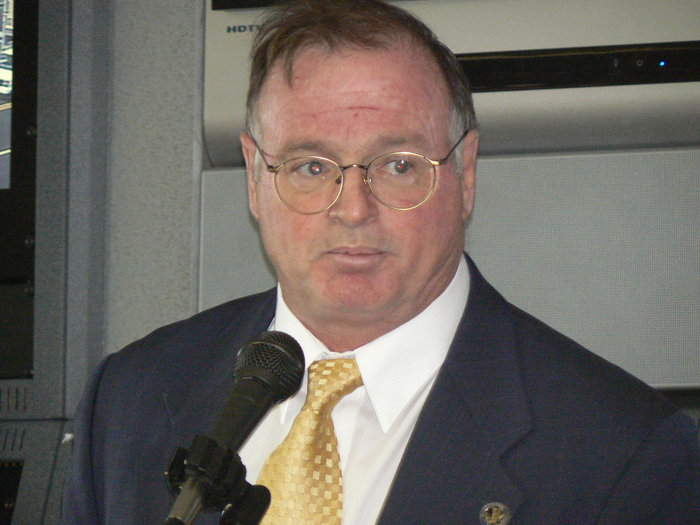JERSEY CITY – Mayor Jerramiah T. Healy and Rep. Albio Sires (D-13th) are calling on the U.S. Department of Transportation’s Pipeline and Hazardous Materials Safety Administration (PHMSA) to better protect highly-populated urban areas from the explosive threat of natural gas pipelines. Arguing that PHMSA fails to safeguard densely-packed large urban populations, the officials are specifically demanding that PHMSA adopt new rules regarding the construction and operation of natural gas pipelines.
“As they presently stand, PHMSA pipeline safety regulations fall woefully short of protecting dense urban areas,” said Mayor Healy. “The agency imposes its strictest safety standards on pipelines in cities that have as few as two four-story buildings. In Jersey City, we are home to the state’s five tallest buildings and have hundreds of residential and commercial buildings well above four stories in a small geographic area which is not even contemplated by this regulatory agency.”
Under PHMSA regulations, Healy said, cities as different as Jersey City and Huntsville, Alabama, receive the same consideration for pipeline construction, even though Jersey City’s population is about 20 times larger than Huntsville.
Healy’s plea to PHMSA comes as another federal agency is considering whether to green-light a proposed natural gas pipeline that Texas-based Spectra Energy hopes to build. If approved by the Federal Energy Regulatory Commission, the proposed pipeline would include 19.8 miles of new and replacement pipes, six new stations, and other related modifications in Linden, Jersey City, and Bayonne. In Jersey City, the underground pipeline route would run through nearly every municipal ward and near such sensitive areas as Jersey City Medical Center, several schools, the Holland Tunnel, the New Jersey Turnpike, and transportation infrastructure near the Jersey City-Hoboken border. Because of the pipeline’s close proximity to sensitive areas, local activists and city officials have argued that a natural gas explosion could cause mass casualties and significantly damage important transportation infrastructure.
To ensure that PHMSA’s regulations better reflect and protect urban areas the city, with the backing of Rep. Sires, has filed a petition asking PHMSA to change its pipeline safety regulations.
The city’s proposed regulatory changes include the addition of new classifications to PHMSA’s rules that reflect cities with mid-rises, high-rises and skyscrapers, and the significant increases in population density that correlate with those structures, and the development of more stringent safety standards to protect large cities.
In response to the city’s request to PHMSA, Spectra spokeswoman Marylee Hanley told the Reporter, “Spectra Energy is committed to building one of the safest natural gas pipelines in North America to help meet New Jersey and New York’s energy demands. The New York-New Jersey Expansion Project meets and often exceeds the highest federal safety requirements. For example, in several places in Jersey City we are exceeding Class 4 code – using HDD’s in the most densely populated areas to bury the pipe up to 180 feet deep, using thicker wall pipe and have added an extra mainline valve.”
But William Schulte, an attorney at Eastern Environmental Law Center who represents Jersey City’s No Gas Pipeline, said, “We often see companies claim that they are being safe and responsible because they are meeting regulatory requirements. But the fact is sometimes we see that the requirements themselves do not adequately protect public safety and welfare.
We commend Jersey City in its efforts to achieve more stringent safety standards for pipelines in ultra-dense urban areas such as Jersey City.” –E. Assata Wright
Our Digital Archive from 2000 – 2016
